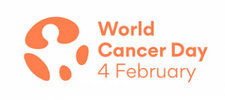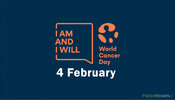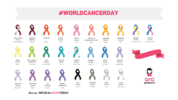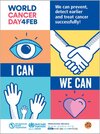World Cancer Day: A leading international awareness day
Every year, ‘World Cancer Day’ is celebrated on 4th February to unite the people of the world to fight against cancer.
World Cancer Day every 4 February is the global uniting initiative led by the Union for International Cancer Control (UICC). By raising worldwide awareness, improving education and catalysing personal, collective and government action, we're working together to reimagine a world where millions of preventable cancer deaths are saved and access to life-saving cancer treatment and care is equal for all - no matter who you are or where you live.
Created in 2000, World Cancer Day has grown into a positive movement for everyone, everywhere to unite under one voice to face one of our greatest challenges in history.
Each year, hundreds of activities and events take place around the world, gathering communities, organisations and individuals in schools, businesses, hospitals, marketplaces, parks, community halls, places of worship - in the streets and online - acting as a powerful reminder that we all have a role to play in reducing the global impact of cancer.
This year's World Cancer Day's theme, 'I Am and I Will', is all about you and your commitment to act. We believe that through our positive actions, together we can reach the target of reducing the number of premature deaths from cancer and noncommunicable diseases by one third by 2030.
Join us on 4 February and speak out and stand up for a cancer-free world.
Our time to act is now.
Last edited:





